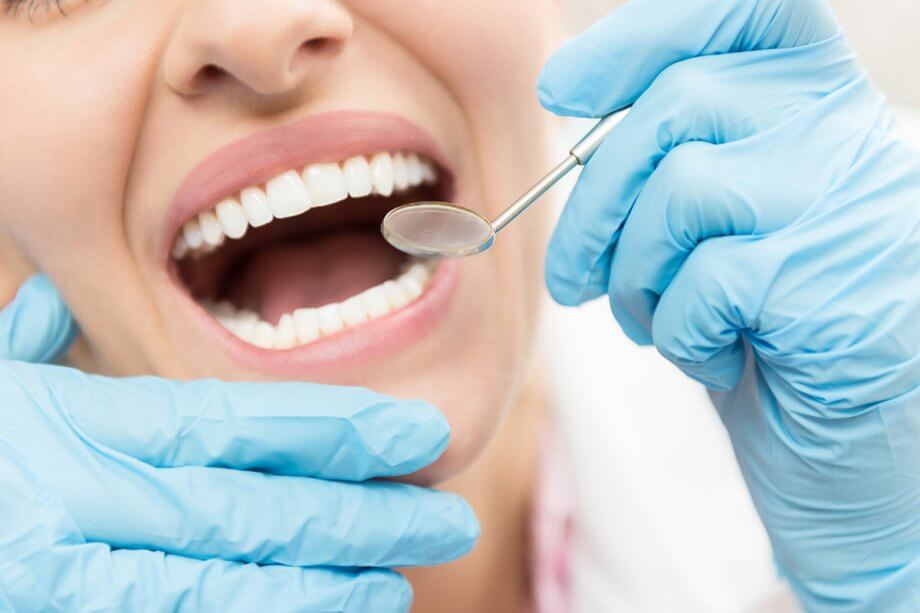Professional teeth cleanings are key to maintaining your oral health. A thorough cleaning by a dentist or periodontist removes plaque from your teeth, reducing your risk of tooth decay and periodontal (gum) disease.
How often should you get your teeth cleaned? Here’s what dentists and dental specialists recommend for a teeth cleaning schedule.
Teeth Cleaning for the Average Patient
Most patients will only need to have their teeth professionally cleaned every 6 months. If you are not at an increased risk of tooth decay or gum disease, and you don’t currently have existing gum disease, twice yearly dental appointments should be sufficient to maintain your oral health. Of course it is still necessary to brush your teeth twice a day and floss once a day in between professional cleanings.
Periodontal Maintenance for Gum Disease
For patients who have gum disease or have had gum disease, periodontal maintenance may be required more frequently. The schedule that is best for you will be determined by the rate at which you develop plaque on your teeth and how quickly it hardens into calculus.
Plaque is a sticky film made of food residue and bacteria that clings to the teeth. When it is not removed by brushing and flossing it will harden over time and become more difficult to remove. The bacteria contained in calculus have reached a certain level of maturity that makes them more likely to infect the gum tissue, causing gum disease.
Periodontal maintenance is just like a regular cleaning, but done more frequently in order to prevent calculus build up from occurring. Periodontal scaling and root planing is an adjunct procedure that is done when there are heavy deposits of calculus on the teeth. Most patients that are on periodontal maintenance may need scaling and root planing every few years to maintain gingival health.
- Scaling. Scaling is the process of removing calculus from the teeth and roots. This requires cleaning under the gums in most cases.
- Root planing. Root planing is done after scaling to smooth out the surface of the roots. This allows the gum tissue to attach more firmly to the roots of the teeth, preventing plaque bacteria from getting under the gums.
Possible Schedules for Periodontal Maintenance
The following are typical schedules for periodontal maintenance:
- Monthly. Your periodontist may recommend that you have your teeth cleaned once a month if you have severe gum disease or you have a rapid rate of plaque development.
- Every other month. For patients with moderate gum disease, every other month may be an appropriate schedule for teeth cleanings.
- Every 3 months. The most common schedule for periodontal maintenance is every 3 months. This translates to 4 dental cleanings a year rather than just two.
Your periodontal maintenance schedule may change as your oral health improves, lessening in frequency until you are back to a normal schedule.
Frequently Asked Questions About Teeth Cleanings
What does teeth cleaning entail?
A typical teeth cleaning appointment will involve removal of plaque and calculus with special dental tools, professional flossing, and polishing the teeth. Periodontal maintenance is similar, but it goes beneath the gums to clean the roots of the teeth as well.
Can periodontal maintenance cure gum disease?
Once gum disease progresses to a certain level of severity it can be difficult to cure. But periodontal maintenance can treat it and keep it under control. There are additional periodontal procedures that can be done to provide more permanent solutions for preventing recurring gum disease.
Why See a Periodontist for Teeth Cleanings?
For the average patient, twice yearly teeth cleanings by a general dentist are sufficient. But for someone who suffers from gum disease and related oral health issues, it may be necessary to see a periodontist for a deeper cleaning of your teeth. Holzinger Periodontics & Dental Implants provides periodontal maintenance on a customized schedule to meet your needs.
To learn more, contact us today and schedule an appointment at one of our two convenient locations.

